13.08.24.UT news.Chennai.26.
Court ruling on SCs/ST quotas a big setback, Govt should act: Kharge
Calls for no change in quota policy, says Opp parties united on issue
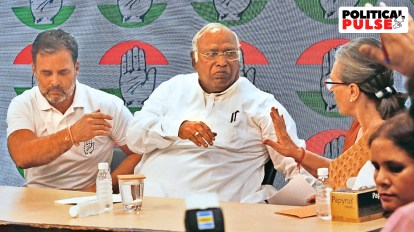 Congress president Mallikarjun Kharge with Rahul Gandhi during a press conference. File photo
Congress president Mallikarjun Kharge with Rahul Gandhi during a press conference. File photoSpeaking to the media Saturday, Kharge, who is also Leader of Opposition in Rajya Sabha, said: “I read that the Prime Minister has said that they will not touch it (reservation for SCs). Then, you should do something immediately. You could have rejected the judgment of the Supreme Court in the Parliament and should have brought it there. You can create a Bill in a couple of hours. For this, you don’t have time despite 10 days having passed.”
He said “the Scheduled Caste community got reservation through Baba Saheb Ambedkar’s Poona Pact” and that later, Pandit Jawaharlal Nehru and Mahatma Gandhi continued the reservation policy.
“…now excluding SC-ST people from reservation by calling them creamy layer is a big setback to them. This shows the BJP’s intention of ending reservation slowly,” he said.
Kharge’s remarks came a day after the Union Cabinet said no to the Court’s suggestion, saying “there is no provision for a creamy layer in SC/ST reservation” in “the Constitution given by B R Ambedkar”. Also Friday, BJP’s SC, ST MPs met Prime Minister Modi who they said assured them that no step would be taken on the suggestion for exclusion of the creamy layer.

On August 1, a seven-judge Constitution Bench of the Supreme Court, in a landmark 6-1 majority verdict, ruled that Scheduled Castes do not constitute a socially homogeneous class and can be sub-classified by States for the purpose of providing reservation to the less privileged among them. Four judges favoured excluding the creamy layer from the SC/ST quota.
Kharge said that no changes to the reservation policy should be brought “until the practice of untouchability is there in the country”. He said the Opposition parties are united on the issue.
He alleged that the public sector was being finished and was being handed over to private players. “They are not filling up the lakhs of vacancies that are there. The second thing, which is interesting, is that there are so many backlog vacancies, but people from all the Scheduled Castes are not being admitted to them,” he said.
On the creamy layer issue, Kharge said: “And no person from the SCs is on any important post… Who do you want to benefit by bringing in a creamy layer? By bringing in a creamy layer, you are crushing the Untouchables and SC community, and on the other hand, you are giving it (benefits) to people who, for thousands of years, have enjoyed everything.”
He said until “untouchability exists in the country, reservation should continue” and the Supreme Court Bench, by “raising the issue of creamy layer, have not thought about the people from the SC community”.
Underlining the issue of “untouchability”, he said: “I heard that someone went to a temple but was not allowed to enter and was made to sit separately… I would also like to mention that there are some areas in Karnataka where they don’t let them enter. A BJP minister had faced this… he was not allowed in by a particular community. Till such issues are there, there should be no changes to reservation,” he said.
He also accused the “government of not having brought the issue to the Parliament despite being capable of writing Bills in a few hours”.
Last Tuesday, the Congress leadership, including Rahul Gandhi, Sonia Gandhi and Kharge, held a meeting on the subclassification issue. Others at the meeting at Kharge’s residence were party general secretary K C Venugopal, Congress’s Karnataka in-charge Randeep Surjewala, general secretary Jairam Ramesh, and the party’s legal and Dalit faces.
Speaking to reporters after the meeting, Ramesh reiterated the party’s demand for a caste census and removal of the Supreme Court-mandated 50% cap on reservation for SCs, STs and OBCs – key promises in the Congress manifesto for the Lok Sabha elections.
Before the Congress, several parties with a significant Dalit votebase, including Mayawati’s BSP, Chiraj Paswan’s LJP and Ramdas Athawale’s RPI, criticised various facets of the court verdict. Paswan, in fact, said his party would go to the Supreme Court for a review of the judgment.
However, two Congress Chief Ministers – Karnataka’s Siddaramaiah and Telangana’s A Revanth Reddy – have welcomed the verdict due to local political compulsions. The Congress leaders, however, said that the party’s view would be decided by the leadership in Delhi.
Kharge said Rahul Gandhi has also been thinking about the issue, and has held meetings to discuss it with intellectuals and lawyers.
“We will do anything for the safety of SCs,” Kharge said and spoke about the lack of representation of Dalits in the judiciary and bureaucracy. “Despite this backlog, you impose a creamy layer. We will not accept it,” he said.
Speaking about Opposition unity “on such issues”, he said: “We will fight together and we will pursue this legally and will pressurise the government too.”
Asad Rehman is with the national bureau of The Indian Express and covers politics and policy focusing on religious minorities in India. A journalist for over eight years, Rehman moved to this role after covering Uttar Pradesh for five years for The Indian Express. During his time in Uttar Pradesh, he covered politics, crime, health, and human rights among other issues. He did extensive ground reports and covered the protests against the new citizenship law during which many were killed in the state. During the Covid pandemic, he did extensive ground reporting on the migration of workers from the metropolitan cities to villages in Uttar Pradesh. He has also covered some landmark litigations, including the Babri Masjid-Ram temple case and the ongoing Gyanvapi-Kashi Vishwanath temple dispute. Prior to that, he worked on The Indian Express national desk for three years where he was a copy editor. Rehman studied at La Martiniere, Lucknow and then went on to do a bachelor's degree in History from Ramjas College, Delhi University. He also has a Masters degree from the AJK Mass Communication Research Centre, Jamia Millia Islamia.
Chirag Paswan Rvp, reaching out to SC MPs as his party seeks review of apex court's reservation verdict
https://timesofindia.indiatimes.com/india/chirag-paswan-reaching-out-to-sc-mps-as-his-party-seeks-review-of-apex-courts-reservation-verdict/articleshow/112444913.cms
Download the TOI app now:
https://timesofindia.onelink.me/mjFd/toisupersharel
In Lok Sabha, ‘dominant’ Dalit groups have more representation: Breaking down the numbers
Most of the 84 Dalit MPs in the Lower House are from groups that are relatively more influential economically and politically and are opposed to the sub-categorisation of Scheduled Castes
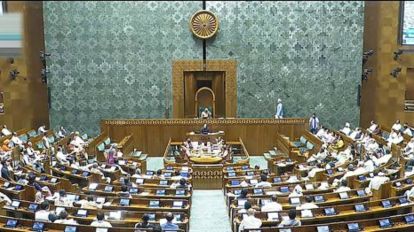 In Uttar Pradesh, of the 17 seats reserved for the SCs, Pasi candidates won seven and Jatavs five. (PTI Photo)
In Uttar Pradesh, of the 17 seats reserved for the SCs, Pasi candidates won seven and Jatavs five. (PTI Photo)With the Supreme Court recently giving way to Scheduled Castes (SC) and Scheduled Tribes (ST), an analysis of the backgrounds of 84 Lok Sabha MPs belonging to the SC community revealed political and economic Dalit sub-groups. Dominance over other SC groups in their respective states saw greater representation in the Lower House of Parliament.
Uttar Pradesh (17), West Bengal (10), Tamil Nadu (7), and Bihar (6) sent the highest number of Dalit MPs to the Lok Sabha as they reserved more seats for the community. They are followed by Karnataka and Maharashtra , which have sent five Dalit MPs each, while Andhra Pradesh , Madhya Pradesh , Punjab and Rajasthan have sent four Schedule Caste MPs each to the lower house.
An analysis by The Indian Express showed that the relative advancement of a particular SC group and its demographics in a particular region were key factors that influenced the decision of political parties to field candidates from those particular communities . One difference between representation in political office like Lok Sabha MP and reservation in government jobs and higher education is that population is primary, while the latter is about upward mobility of a particular Dalit caste. This is something that the Supreme Court sought to address by allowing sub-classification.
In Uttar Pradesh, of the 17 seats reserved for the SCs, Pasi candidates won seven and Jatavs five. Pasis, at 16% of the SC population in the state, are the second-largest SC group numerically after Jatavs, who make up 56% of the Dalit population. Viewed as a traditional vote bank of the Bahujan Samaj Party (BSP), Jatavs partially voted for the SP-Congress alliance this time while not completely deserting the Mayawati-led party that had a 9% vote share in the state this time. One exception was Nagina, where Jatavs voted en bloc for Chandrashekhar Azad of the Azad Samaj Party (Kanshi Ram) who too is from the community.
The five other Dalit MPs from UP are from the Dhangar, Kharwar, Gond, and Valmiki communities that lag behind Jatavs in education and access to government jobs and services.

In West Bengal, the Trinamool Congress (TMC) won six of the 10 SC-reserved seats while the BJP bagged the rest. Four of the Dalit MPs are from the Namasudra community, considered to be one of the dominant SC groups in the state. The two Rajbanshi MPs and the lone MP from the Poundra community won from constituencies where their respective communities are the dominant electoral force. The other three Dalit MPs from the state belong to the Sunri, Mal, and Bagdi communities that are comparatively more backward than the rest.
In Bihar, of the six Dalit MPs, two each are from the relatively affluent Dusadh and Rabidas communities while one each is from the more backward Musahar and Pasi communities. The Musahars in Bihar suffer from severe deprivation while unlike in UP, Pasis are not well-off compared to the other Dalit sub-groups in Bihar.
In the south Indian states too, the dominant Dalit groups enjoy a lion’s share of representation in the Lok Sabha, with 17 of the 21 SC-reserved seats held by Malas in the Telugu states of Telangana and Andhra Pradesh; SC Right (Holeyas) and “touchable” Dalits of Karnataka; Pulayas of Kerala; and Paraiyars and Pallars of Tamil Nadu. All these Dalit communities are politically and economically dominant compared to other Dalit sub-groups.
In Tamil Nadu, five of the seven SC-reserved seats are held by Paraiyars, while two are held by MPs from the Pallar community. Madigas, seen to be the less dominant community in Andhra Pradesh, Karnataka, and Telangana, hold only four seats.
The trend of dominant SC communities taking up a large share of candidature in south Indian states is linked to their significant political influence over the years. In Andhra and Telangana, both the Telugu Desam Party (TDP) and the Congress nominated more Malas than Madigas over the years. In Karnataka, the BJP, which is seen to have a voter base among Madigas, fielded two candidates from the community while the Congress’ two winning candidates came from the Holeya community. In Kerala, Pulayas made up a significant portion of the Congress’s SC candidates.
Many dominant Dalit communities have also opposed sub-divisions of SCs. These include the Malas in Andhra and Telangana, the Holiyas in Karnataka, and the Paraiyars and Puliyars in Tamil Nadu and Kerala. Mayawati, whose BSP party counts the Jadavs as one of its core vote bases, on Sunday said the sub-classification of SCs was "unfair".
In other parts of the country, the dominant SC community seems to have had the lion's share of representation. In Maharashtra, India Bloc won all five SC-reserved seats, with two MPs from the relatively affluent Mahar community and one each from the Mala Jangam, Sambar and leather worker communities, which are relatively less dominant.
In Punjab, three out of four Dalit MPs belong to the Ravidasia community and one is a Ramdasia Sikh. Both communities are dominant groups among Dalits. Rajasthan, too, has not ignored this trend and has elected three Jatavs and one Meghwal from the dominant SC communities to the Lok Sabha and a lone MP from the Tanuk community, seen as less influential.
In Madhya Pradesh, where the BJP won all 29 Lok Sabha seats, four SC-reserved seats in the state, two MPs are from the backward Kadhik community and one each from the dominant Jadav and Balai communities.
In other states, such as Assam, Chhattisgarh , Himachal Pradesh, Jharkhand, Delhi and Uttarakhand, which have only one SC-reserved seat, Dalit MPs belong to the Tuppi, Samar, Rehgar and Shilbkar communities, all considered dominant groups among SCs. in their respective states.
Upper caste farmer, son ‘thrash’ Dalit woman in Uttar Pradesh, booked
Victim’s husband alleges that he had to make rounds of the police station in the Banda district for several days to get the case registered
 The accused have been identified as Rajendra Singh, also known as Badelala, and his son Jitendra Pratap Singh, residents of Sikauhula village.
The accused have been identified as Rajendra Singh, also known as Badelala, and his son Jitendra Pratap Singh, residents of Sikauhula village.Police have registered a case against an upper caste farmer and his son for allegedly beating up a Dalit woman for drawing water from a borewell in Uttar Pradesh's Banda district. Police said the Dalit woman was working as an agricultural labourer.
Moni Nishad, Station House Officer, Jaspura Police Station (Banda), said a case has been registered based on the complaint of victim Sita Devi, 36. She has not been arrested yet and investigation is on.
The accused have been identified as Rajendra Singh alias Patelala and his son Jitendra Pratap Singh, residents of Chikauhula village. The incident reportedly took place on August 6, but the police registered the FIR on Saturday.
When asked about the delay in registering the FIR, Sita Devi's husband Puttu Songar, 43, said he had been going around the police station for days to file a case.
“I also lodged a complaint with the police control room about the incident. Finally, the police registered a case on August 10,” said Sonkar, who earns his living as a laborer.

Sonkar further said that his wife and others were working in the field of accused Rajendra Singh's relative Chandra Shekhar on August 6. But around 2 pm his wife felt thirsty and went to a tube well owned by Rajendra Singh.
"They used casteist remarks and told her, 'You belong to low caste; don't drink water from here.' To which she replied, 'Well, we are low caste; let's go somewhere else to drink water. But don't abuse me,' they slapped her," narrated the victim's husband. .
Other women working in the fields rushed to the spot and intervened, after which the father and son left the spot, he added.

Subscribe to receive the day's headlines from The Indian Express straight in your inbox
An FIR has been registered under sections 115 (intentionally causing hurt) and 352 (intentional insult with intent to disturb peace) of Bharatiya Nyaya Sanhita. Police have also invoked the Scheduled Castes and Tribes (Prevention of Atrocities) Act against the accused.
6-year-old Dalit boy locked in classroom, ‘forced to clean toilet’

What’s the story
A six-year-old Dalit boy was found locked inside a classroom at a government primary school in Jansath, Uttar Pradesh.
The child’s mother has alleged that her son was forced to clean the school’s toilet by two teachers.
The incident took place on Tuesday when the Class 1 student was discovered locked inside the classroom due to the alleged negligence of Principal Sandhya Jain and class teacher Ravita Rani, reports said.
Police complaint
Mother alleges teachers’ ‘hatred’ against Dalit children
The mother filed a police complaint, alleging that her son was forced to clean toilets as the teachers harbored “hatred” against Dalit children.
She claimed her son remained locked in the classroom alone for over an hour after school.
When he didn’t return home after school, she inquired with other students who were unaware of his whereabouts.
Discovery
Mother reaches school to find son
Upon reaching the school, the mother found it locked but heard her son crying from inside.
She alerted the villagers and family members, who then contacted the school principal.
Teacher Rani’s husband arrived at the school with keys and unlocked it to rescue the child.
Rani’s husband suggested that the child might have fallen asleep in the class.
You’re 50% through
Action taken
Principal suspended; committee formed to investigate matter
Basic Shiksha Adhikari (BSA) Sandeep Kumar told news agency PTI that Principal Jain has been suspended and an adverse entry made against teacher Rani.
A two-member committee, led by BSA of Jansath and Shahpur, has been formed to investigate the matter.
They’re expected to submit a report within three days.
All staff members have been instructed to check classrooms before closing the school.
Quote
Principal calls suspension ‘unjust;’ blames class teacher
Principal Jain expressed her discontent with the suspension, calling it “unjust.”
She said that the class teacher was responsible for the incident.
She added, “Even if the child was sleeping, the classroom should have been checked before locking it.”
The police are currently investigating the matter.
Courtesy : Newsbytes
Adivasi-Dalit groups call hartal in Kerala on Aug 21 over SC reservation verdict
In a joint statement signed by leaders of various Adivasi-Dalit organisations, it was alleged that the verdict aimed to divide the SC/ST list on a caste basis and introduce a 'creamy layer' within SC/ST categories.
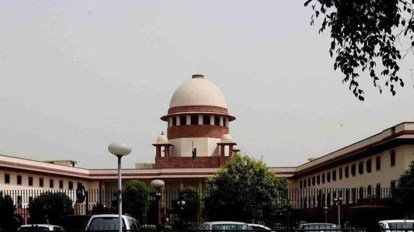
Various Adivasi-Dalit organisations on Tuesday called for a state-wide hartal in Kerala on August 21, to protest the recent Supreme Court verdict on the sub-categorisation of reservations for Scheduled Castes and Scheduled Tribes as granted under the Constitution.
In a joint statement signed by leaders of various Adivasi-Dalit organisations, it was alleged that the verdict aimed to divide the SC/ST list on a caste basis and introduce a ‘creamy layer’ within SC/ST categories.
They said the hartal will exempt Wayanad district due to the recent natural disasters.
The outfits announced that the state-wide hartal is part of the Bharat Bandh called by Bhim Army and various Dalit-Bahujan movements.
The primary demand is for Parliament to pass legislation overturning the Supreme Court verdict, according to the statement.

Despite the BJP government’s assurance that it will not implement the creamy layer, the central government has yet to acknowledge that the creamy layer division is the basis for categorising the list, they alleged.
Earlier this month, a seven-judge Bench of the Supreme Court led by Chief Justice D Y Chandrachud ruled in a 6:1 majority judgment that state governments were permitted to sub-classify communities within the SC list based on empirical data.
Supreme Court judge Justice B R Gavai had said that States must evolve a policy for identifying the creamy layer even among the Scheduled Castes (SC) and Schedule Tribes (ST) and deny them the benefit of reservation.
Justice Gavai penned a separate but concurring judgment in which the top court by a majority verdict said the states are empowered to make sub-classifications of Scheduled Castes and Scheduled Tribes for granting quotas within the reserved category to uplift those who belong to the more underprivileged castes.

Subscribe to receive the day's headlines from The Indian Express straight in your inbox
The Union Cabinet has asserted that there was no provision for a creamy layer in the reservation for SCs and STs in the Constitution given by B R Ambedkar.
Possible revival of Dalit politics today Premium
While other political parties have often joined hands to secure their class and social interests, the Dalit parties hardly pondered the possibility of uniting different Dalit political and social organisations at the national level
Updated - August 13, 2024 01:40 pm IST
Published - August 13, 2024 12:41 am IST

Azad Samaj MP Chandrashekhar Azad Ravan at Parliament during the First Session of the 18th Lok Sabha. File | Photo Credit: ANI
In the 2024 general election, with the decline of the Bahujan Samaj Party (BSP) in Uttar Pradesh and the Vanchit Bahujan Aghadi (VBA) in Maharashtra, the independent political assertion of Dalit politics has been relegated to a new low. However, Dalit political parties like the Lok Janshakti Party (LJP) in Bihar and Viduthalai Chiruthaigal Katchi (VCK) in Tamil Nadu showcased a promise that Dalit politics can remain relevant in the democratic discourse if they form alliances with national political fronts.
Such diversification within the Dalit political discourse shows that the heightened ideological commitment to the Ambedkarite political values is diminishing, as Dalit political parties are exploring various alternatives to find meaning in their existence. This heterogeneity also reveals that the Dalit parties and leaders lack a grand political vision to build a national front against the conventional ruling elites, remaining comfortable with their regional specificities. For the rebirth of Dalit politics, newer ideological virtues under a committed political leadership are essential.
Possible revival of Dalit politics today Premium
While other political parties have often joined hands to secure their class and social interests, the Dalit parties hardly pondered the possibility of uniting different Dalit political and social organisations at the national level
Updated - August 13, 2024 01:40 pm IST
Published - August 13, 2024 12:41 am IST

Azad Samaj MP Chandrashekhar Azad Ravan at Parliament during the First Session of the 18th Lok Sabha. File | Photo Credit: ANI
In the 2024 general election, with the decline of the Bahujan Samaj Party (BSP) in Uttar Pradesh and the Vanchit Bahujan Aghadi (VBA) in Maharashtra, the independent political assertion of Dalit politics has been relegated to a new low. However, Dalit political parties like the Lok Janshakti Party (LJP) in Bihar and Viduthalai Chiruthaigal Katchi (VCK) in Tamil Nadu showcased a promise that Dalit politics can remain relevant in the democratic discourse if they form alliances with national political fronts.
Such diversification within the Dalit political discourse shows that the heightened ideological commitment to the Ambedkarite political values is diminishing, as Dalit political parties are exploring various alternatives to find meaning in their existence. This heterogeneity also reveals that the Dalit parties and leaders lack a grand political vision to build a national front against the conventional ruling elites, remaining comfortable with their regional specificities. For the rebirth of Dalit politics, newer ideological virtues under a committed political leadership are essential.
SC’s sub-quota order has Tamil Nadu’s Dalit parties divided. The united front of the ’90s is missing
Apex court’s decision to allow SC/ST sub-classification, the row over a BSP leader’s murder & parties’ political alliances have exposed a rift among state’s Ambedkarite parties.
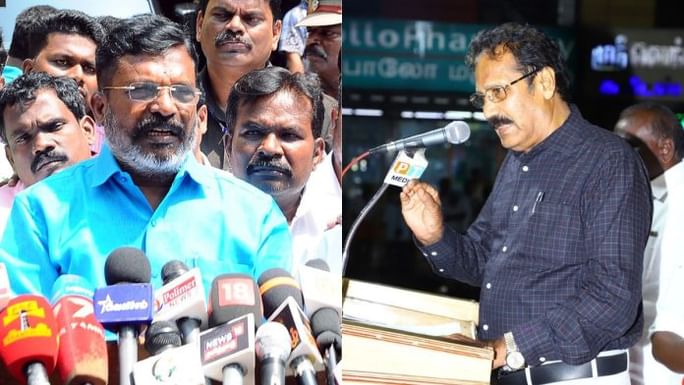
Viduthalai Chiruthaigal Katchi (VCK) and Puthiya Tamilagam (PT) — both founded in the late 1990s to speak for Ambedkarite issues and to counter the two main Dravidian parties of Dravida Munnetra Kazhagam (DMK) and All India Anna Dravida Munnetra Kazhagam (AIADMK) — are jostling to project themselves as the party truer to the cause of the Dalits.
While VCK leader Thol. Thirumavalavan was batting for reservation for the Arunthathiyars within the SC category, arguing that the move would uplift the most underrepresented community, PT founder K. Krishnasamy called it a ploy to divide the Dalits.
Commercial taxes department office in Srikakulam registered a complaint with the superintendent of police (SP) against an officer alleging harassment on Monday. According to the complaint, the woman employee was harassed by the joint commissioner (JC) of the Vizianagaram zone, Budumuru Nagarjuna. She said she was suspended by the JC illegally earlier but later on it was cancelled with the involvement of higher officials at state level. Even after she rejoined in her duties, the JC allegedly harassed her as she belongs to the SC community and her colleagues who expressed solidarity during her suspension were also harassed. On receiving the complaint, SP KVMaheswar Reddy referred the matter to II Town police to inquire into the issue. Email ArticlePrint Article 📣 The Hans India is now on Telegram. Click here to join our channel (@thehansindia) and stay updated with the latest headlines More On Dalit woman employeeA RajeswariSP KVMaheswar ReddyII Town policeAndhra Pradesh news More Stories Two teachers washed out in stream Chandrababu meets CII Director General, says CII Multi Skill... Chandrababu meets Bar Council of India delegation today, says BCI... Chandrababu announces Task Force for economic development in AP,... Jana Sena Wishes on 78th Independence Day, Calls for Progress and... Pawan Kalyan extend Independence Day wishes, Calls for Unity and... AP energy minister Gottipati Ravi Kumar urges public to avail PM... Heavy Rainfall Predicted in Andhra Pradesh: Meteorological Dept.... Pawan Kalyan Lauds ISRO Scientists at National Space Day... Kollu Ravindra meets Union Minister Kishan Reddy, seeks... Unfulfilled promises fuelling public dissatisfaction: Jagan AP minister NMD Farooq launches Har Ghar.
‘Unfair, will lead to more backlog’: Disquiet over SC, ST sub-classification order
Newslaundry spoke to several Dalit outfits to understand how the recent SC order will impact marginalised groups.
The 6:1 landmark judgement of the Supreme Court allowing states to create sub-classifications within the Scheduled Caste and Scheduled Tribe categories has evoked a mixed response among outfits that work to protect the rights of these marginalised groups.
The August 1 verdict had overruled a 2004 judgement to allow governments to reserve seats for specific sub-groups within the quotas for the SCs and STs, based on the sub-group’s disadvantaged status. But while some hailed it as a progressive move giving voice to the “voiceless”, others pointed to the implications of the ruling considering the absence of empirical data, reserved seats left vacant, a possible misuse by state governments, and the impact on the larger reservation pie.
Several Dalit groups have announced protests, from a ‘Bharat Bandh’ on August 21 to plans to distribute rakhis to register objections.
Newslaundry spoke to several Dalit organisations across the country to understand what the judgement means to them and how it will impact marginalised communities across different states.
‘Against constitution, need census’
“The ruling has no strong basis,” said Manjula Pradeep, co-founder of the Dalit Human Rights Defenders Network, a network of human rights activists across India, as she pointed to the lack of data. She also said the Supreme Court should have first reviewed the “failure of the reservation” as seats reserved for the SCs and STs are not filled up and eventually allocated to the general category.
While delivering the judgement, Chief Justice of India DY Chandrachud had said that states must give sub-quota on the basis of “quantifiable and demonstrable data bearing on levels of backwardness and representation”. But most states and union territories are not equipped with a comprehensive caste dataset, except Bihar, which has released its caste census findings – Andhra Pradesh is expected to conduct its own.
At the national level, the census act will need an amendment to include caste. And the socio-economic and caste census conducted in 2011 under the then Congress-led UPA government was never put in the public domain.
Uday Kumar, founder of the Dalit Association for Social and Human Rights Awareness, claimed that the verdict is “not fair” and it is not backed with data. DASHRA is based in Bihar, which has 23 recognised SCs and 33 ST communities.
According to the 2011 census, SCs and STs make up 16.6 percent and 8.6 percent of India’s population, respectively. Currently, SCs have a 15 percent quota while STs have 7.5 percent reservation in public-funded education and jobs.
Kumar said there are certain communities in Bihar, such as Musahar and Mehtar, which are more backward than others, but that doesn’t make a premise for sub-classification, as it does not guarantee awareness among them to seek the benefits that could be given to them. “There is a need for a holistic approach”.
Tulsi Das Raj, convenor of Rajasthan-based Dalit Adhikar Network, gave the example of the Ghumantu or nomadic tribes in Rajasthan. He said that these tribes which have a tradition to “educate their children to get bhiksha (or alms)” will not be able to avail the benefits “because they are not aware enough to exercise their rights”. This will result in backlogs and vacant seats, “and then, like always, the seats reserved for SCs, out of compulsion, would go to the general category. Thus, this verdict is against the constitution”.
Ashok Bharti, chairman of Haryana-based National Confederation of Dalit and Adivasi, said that the six-member Supreme Court bench had little representation of the Dalits. “The ruling is against the constitutional spirit.”
‘Will give voice to the backward’, but a caveat
However, Dr Vimal Kumar of Mumbai-headquartered Movement for Scavenger Community, who is from the Valmiki community, asserted that “this judgement benefits the communities who do not have any representation”. He said he has witnessed untouchability not only by other castes but also within the SCs. “The scavenger castes among the Dalits have been left behind because of their traditional occupation. In Maharashtra, there are people who migrate from different parts of India, who work in municipalities and they are till date fighting for the SC certificate. This verdict is fair for them. You can imagine what kind of representation this sub-classification may bring for them.”
He said the categorisation “may bring with it representation” to “smaller communities” such as Bazigar and Sapera in Punjab and Haryana and the sweeper community in Rajasthan. There are 39 recognised SCs and no STs in Punjab; 59 SCs and 12 STs in Rajasthan; and 37 recognised SCs and no STs in Haryana.
However, Daulat Ram, founder secretary of Uttar Pradesh-based Bhartiya Jan Sewa Ashram, alleged that it is “a way to make the castes within the SCs fight against each other”.
Meanwhile, V Ramesh Nathan, executive director of Tamil Nadu-based Social Awareness Society for Youths, said the verdict will “improve access to social capital, education, and employment”, but the court should “carefully consider” the power it is conferring on state governments.
Justice Bela Trivedi, the only judge on the bench to oppose the sub-classification, had also argued that “states are not competent to enact affirmative action laws”.
Nathan added that another concern is that the sub-classification will take a piece away from the larger reservation pie for all the other SCs, so the government needs to increase the total reservation percentage.
‘Entire community can’t be creamy layer’
Justice BR Gavai, the only Scheduled Caste judge on the bench, had suggested that the state must “evolve a policy for identifying the creamy layer even from the SCs and STs so as to exclude them from the benefit of affirmative action”.
But Dalit activists said the “creamy layer” is “non-existent”, and there is no corresponding government data.
Nathan of the Social Awareness Society for Youths said that the concept of the creamy layer is “against social justice. Because social justice is not based only on economic status. It is based on the atrocities committed for generations.”
Bharti of NCDA questioned if Jeetan Ram Manjhi could be included in the “creamy layer”. “Then why was the temple washed and purified after he visited it?”
Raj of Dalit Adhikar Network said, “I wouldn’t call it a creamy layer per se, but rather people who have progressed. People who are in the first or second grade of services using reservation, if they have been able to uplift themselves in an economic and social sense, can surely be deprived of reservation. But categorisation of the entire caste is a big thing.”
Uday Kumar of DASHRA said that “just because one or two people from a certain community have succeeded, that doesn’t give us the right to categorise the entire reservation policy and call them creamy layer. There is one Mayawati, or Ram Vilas Paswan, or Manjhi. Because they became ministers, it doesn’t mean their entire community is uplifted.”
.

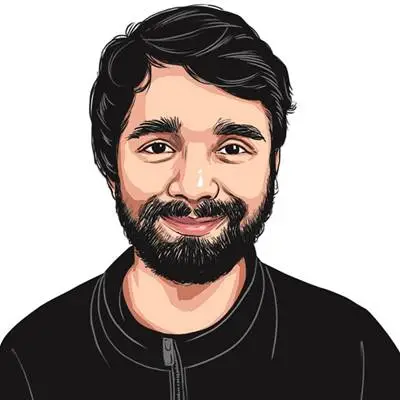













Comments
Post a Comment